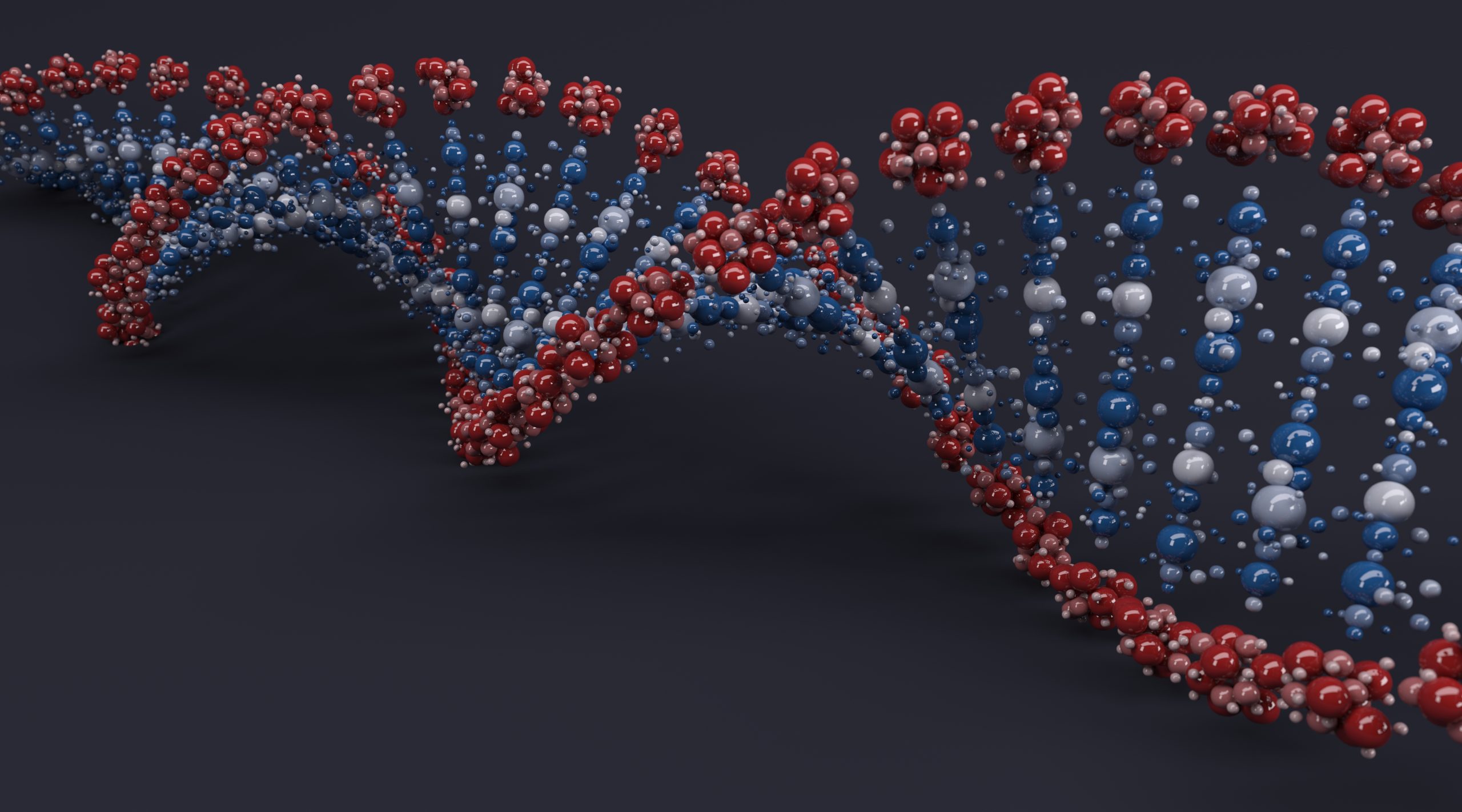

New research from UCL has revealed the biochemistry of a rare genetic mutation that allows its owner to live nearly pain-free, heal more quickly, and experience less anxiety and fear. The finding, published in Brain, follows the team’s discovery of the FAAH-OUT gene and the unusual mutations that lead Jo Cameron to feel virtually no pain and never feel nervous or afraid in 2019. The current study details how the FAAH-OUT mutation “turns down” FAAH gene expression, as well as the knock-on effects on other biochemical pathways connected to wound healing and mood. It is hoped that the discoveries would lead to new therapeutic targets and new paths of research in these areas.
The UCL team wanted to understand how FAAH-OUT operates at the molecular level in this study, which is the first step in harnessing this unique biology for applications such as medication discovery.
This comprised a variety of tactics, such as CRISPR-Cas9 tests on cell lines to imitate the effect of the mutation on other genes, as well as assessing gene mutation to determine which genes were active in pain, mood, and healing biochemical pathways.
Jo, who lives in Scotland, was sent to pain geneticists at UCL in 2013 when her doctor noted she had no pain despite major surgery on her hip and hand. After six years of searching, they discovered a novel gene called FAAH-OUT, which carried an uncommon genetic mutation. It was discovered to be the origin of Jo’s unusual traits when combined with another, more common FAAH mutation.
The region of the genome encoding FAAH-OUT was previously thought to be “junk” DNA with no function, but it was discovered to mediate the production of FAAH, a gene that is part of the endocannabinoid system and is well-known for its involvement in pain, mood, and memory.
The researchers discovered that FAAH-OUT modulates FAAH expression. FAAH enzyme activity levels are greatly lowered when it is significantly turned down as a result of Jo Cameron’s mutation.
Dr. Andrei Okorokov (UCL Medicine), a senior author of the study, said, “The FAAH-OUT gene is just one small corner of a vast continent, which this study has begun to map. As well as the molecular basis for painlessness, these explorations have identified molecular pathways affecting wound healing and mood, all influenced by the FAAH-OUT mutation. As scientists it is our duty to explore and I think these findings will have important implications for areas of research such as wound healing, depression and more.”
The researchers studied the effects of the FAAH-OUT-FAAH axis on other molecular pathways using patient fibroblasts. While Jo Cameron’s mutations inhibit FAAH, they also discovered 797 genes that were turned up and 348 that were turned down. This includes changes to the WNT pathway, which is connected with wound healing, as well as increased activity in the WNT16 gene, which has previously been linked to bone regeneration.
BDNF, which has previously been linked to mood modulation, and ACKR3, which helps to modulate opioid levels, were also altered. These DNA modifications could explain Jo Cameron’s lack of worry, fear, and pain.
Professor James Cox (UCL Medicine), a senior author of the study, said, “The initial discovery of the genetic root of Jo Cameron’s unique phenotype was a eureka moment and hugely exciting, but these current findings are where things really start to get interesting. By understanding precisely what is happening at a molecular level, we can start to understand the biology involved and that opens up possibilities for drug discovery that could one day have far-reaching positive impacts for patients.”
more recommended stories
 Nanoplastics in Brain Tissue and Neurological Risk
Nanoplastics in Brain Tissue and Neurological RiskKey Takeaways for HCPs Nanoplastics are.
 AI Predicts Chronic GVHD Risk After Stem Cell Transplant
AI Predicts Chronic GVHD Risk After Stem Cell TransplantKey Takeaways A new AI-driven tool,.
 Red Meat Consumption Linked to Higher Diabetes Odds
Red Meat Consumption Linked to Higher Diabetes OddsKey Takeaways Higher intake of total,.
 Pediatric Crohn’s Disease Microbial Signature Identified
Pediatric Crohn’s Disease Microbial Signature IdentifiedKey Points at a Glance NYU.
 Nanovaccine Design Boosts Immune Attack on HPV Tumors
Nanovaccine Design Boosts Immune Attack on HPV TumorsKey Highlights Reconfiguring peptide orientation significantly.
 High-Fat Diets Cause Damage to Metabolic Health
High-Fat Diets Cause Damage to Metabolic HealthKey Points Takeaways High-fat and ketogenic.
 Acute Ischemic Stroke: New Evidence for Neuroprotection
Acute Ischemic Stroke: New Evidence for NeuroprotectionKey Highlights A Phase III clinical.
 Statins Rarely Cause Side Effects, Large Trials Show
Statins Rarely Cause Side Effects, Large Trials ShowKey Points at a Glance Large.
 Anxiety Reduction and Emotional Support on Social Media
Anxiety Reduction and Emotional Support on Social MediaKey Summary Anxiety commonly begins in.
 Liquid Biopsy Measures Epigenetic Instability in Cancer
Liquid Biopsy Measures Epigenetic Instability in CancerKey Takeaways Johns Hopkins researchers developed.

Leave a Comment